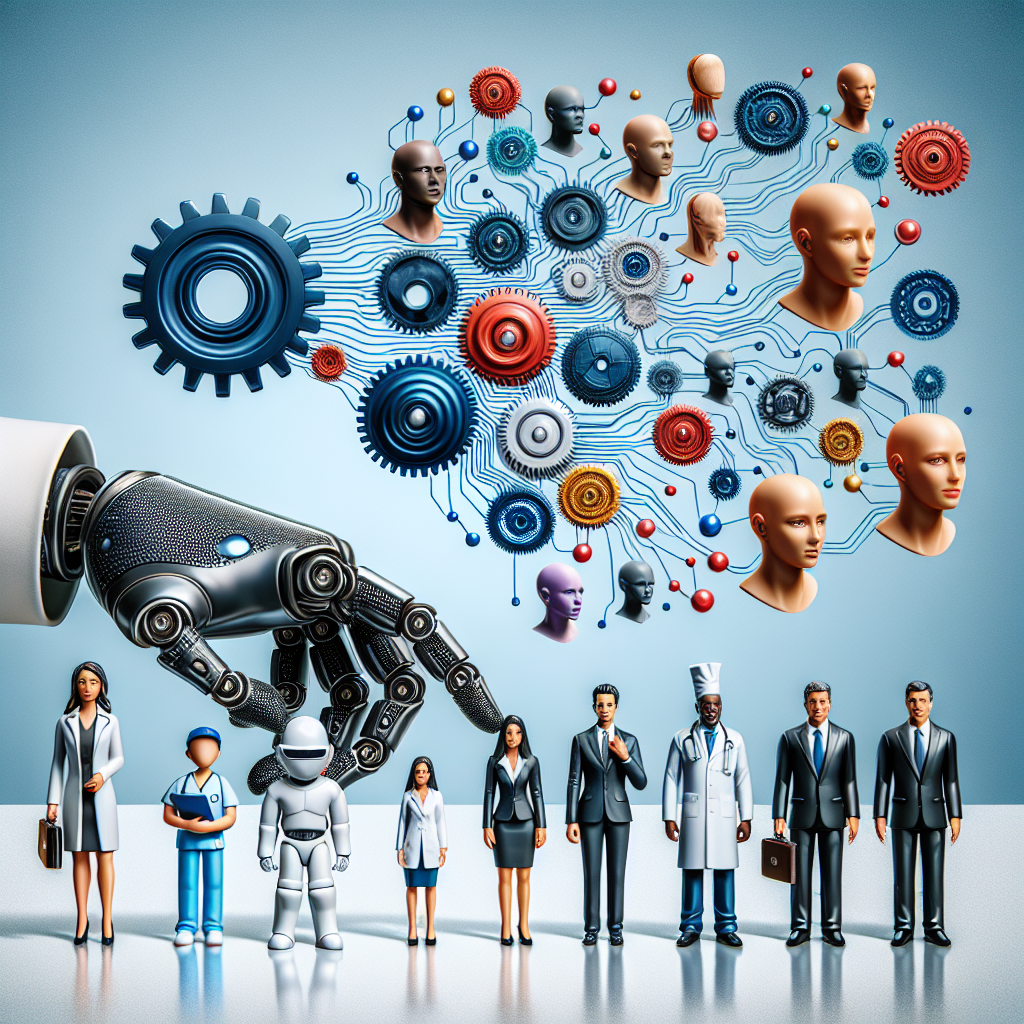Artificial General Intelligence (AGI) has the potential to revolutionize industries and societies in ways we have never seen before. AGI refers to machines that can perform any intellectual task that a human can do, and potentially even surpass humans in terms of cognitive abilities. As AGI continues to advance and become more integrated into our daily lives, it is important to consider the impact it will have on job markets and the economy.
The Impact of AGI on Job Markets
The introduction of AGI into job markets will undoubtedly lead to significant changes in the types of jobs available and the skills required to perform them. While some jobs may be eliminated altogether as machines become more capable of performing tasks currently done by humans, new jobs will also be created to support and develop AGI technologies. Here are some ways in which AGI may impact job markets:
1. Automation of routine tasks: AGI has the potential to automate routine tasks across a wide range of industries, from manufacturing to customer service. Jobs that involve repetitive tasks or data analysis may be at risk of being replaced by machines, leading to potential job loss for workers in these fields.
2. Increased demand for skilled workers: On the other hand, the development and implementation of AGI technologies will require a highly skilled workforce to design, maintain, and improve these systems. Jobs in fields such as machine learning, data science, and artificial intelligence engineering may see increased demand as companies invest in AGI technologies.
3. Shift in job roles: As machines take over routine tasks, human workers may be freed up to focus on more complex and creative work. This could lead to a shift in job roles towards those that require critical thinking, problem-solving, and interpersonal skills that are difficult for machines to replicate.
4. Displacement of workers: The rapid advancement of AGI technologies may lead to displacement of workers in certain industries, particularly those that are heavily reliant on manual labor or routine tasks. It will be important for governments and businesses to invest in retraining programs and support systems to help workers transition to new roles in the evolving job market.
The Impact of AGI on the Economy
The integration of AGI into the economy will have far-reaching implications for businesses, consumers, and governments. AGI has the potential to drive innovation, increase productivity, and create new opportunities for economic growth. However, it also presents challenges in terms of job displacement, income inequality, and ethical considerations. Here are some ways in which AGI may impact the economy:
1. Increased productivity: AGI technologies have the potential to significantly increase productivity in industries across the board. By automating routine tasks and streamlining processes, businesses can reduce costs, improve efficiency, and deliver products and services more effectively to consumers.
2. Innovation and new opportunities: The development of AGI technologies will open up new opportunities for innovation and entrepreneurship. Businesses that embrace AGI can gain a competitive advantage by leveraging these technologies to create new products, services, and business models that meet the changing demands of consumers.
3. Income inequality: One potential consequence of the widespread adoption of AGI technologies is the exacerbation of income inequality. As machines take over routine tasks, workers in low-skilled jobs may be at risk of losing their jobs or experiencing wage stagnation. It will be important for policymakers to address these challenges and ensure that the benefits of AGI are shared equitably across society.
4. Ethical considerations: The development of AGI technologies raises important ethical questions around issues such as privacy, security, and the impact on society. As machines become more intelligent and autonomous, it will be crucial to establish regulations and guidelines to ensure that AGI is used in a responsible and ethical manner.
FAQs
Q: Will AGI lead to mass unemployment?
A: While the introduction of AGI may lead to job displacement in certain industries, it is also likely to create new opportunities for employment in fields related to AI and machine learning. However, it will be important for governments and businesses to invest in retraining programs and support systems to help workers transition to new roles.
Q: How can businesses prepare for the impact of AGI on the economy?
A: Businesses can prepare for the impact of AGI by investing in training and upskilling their workforce, embracing innovation and automation, and staying informed about the latest developments in AI technologies. It will be important for businesses to adapt to the changing landscape of the economy and leverage AGI to drive growth and competitiveness.
Q: What role should governments play in regulating AGI technologies?
A: Governments have a critical role to play in regulating AGI technologies to ensure that they are used in a responsible and ethical manner. This may involve establishing guidelines for the development and deployment of AGI, addressing issues related to privacy and security, and promoting transparency and accountability in the use of these technologies.
In conclusion, the impact of AGI on job markets and the economy is likely to be profound and far-reaching. While there are challenges and uncertainties associated with the widespread adoption of AGI technologies, there are also opportunities for innovation, productivity, and economic growth. It will be important for businesses, governments, and society as a whole to work together to navigate the complexities of the AGI revolution and ensure that its benefits are shared equitably across all sectors of the economy.

